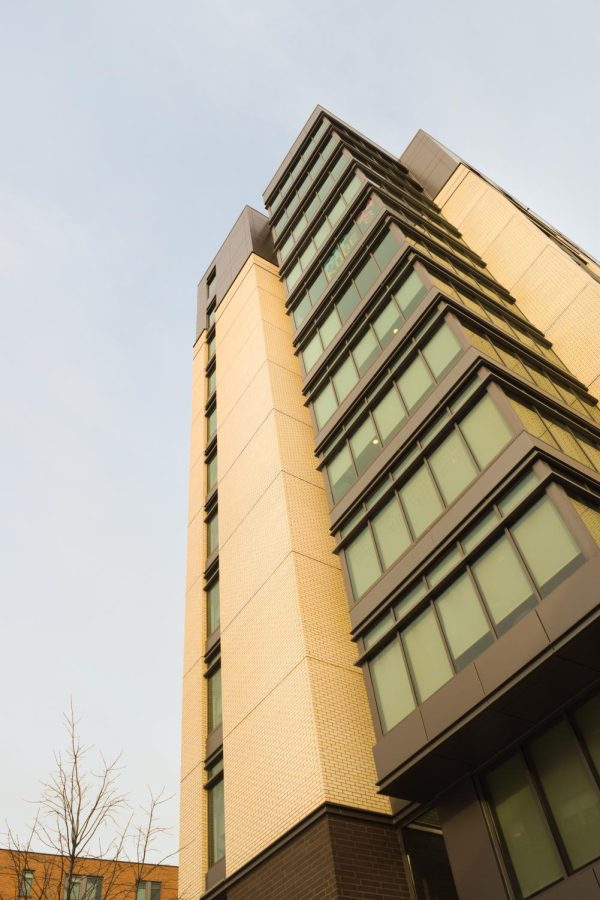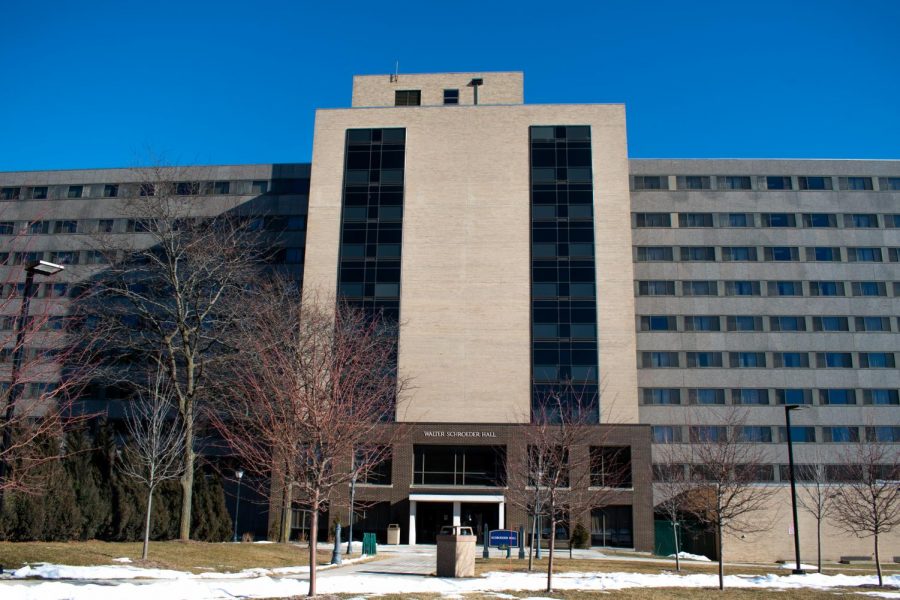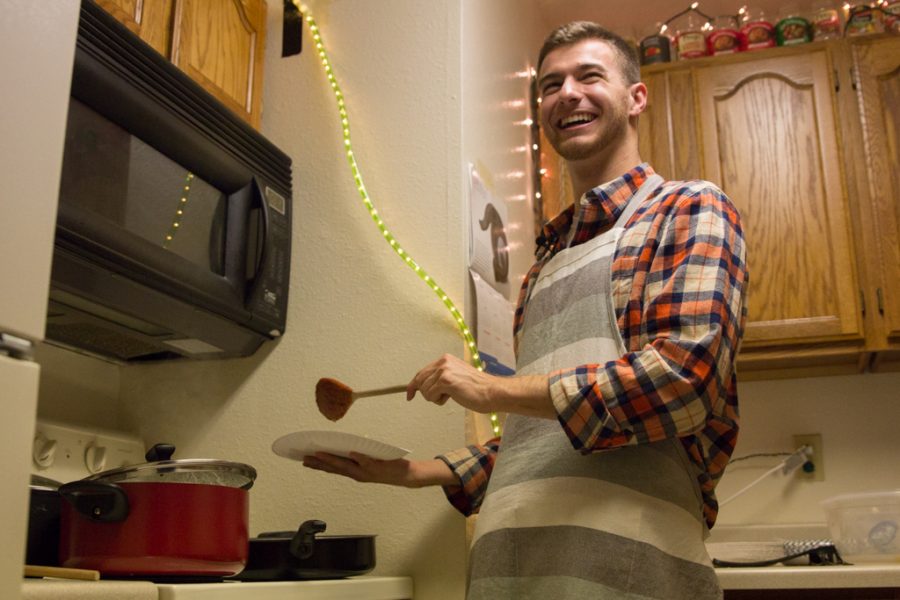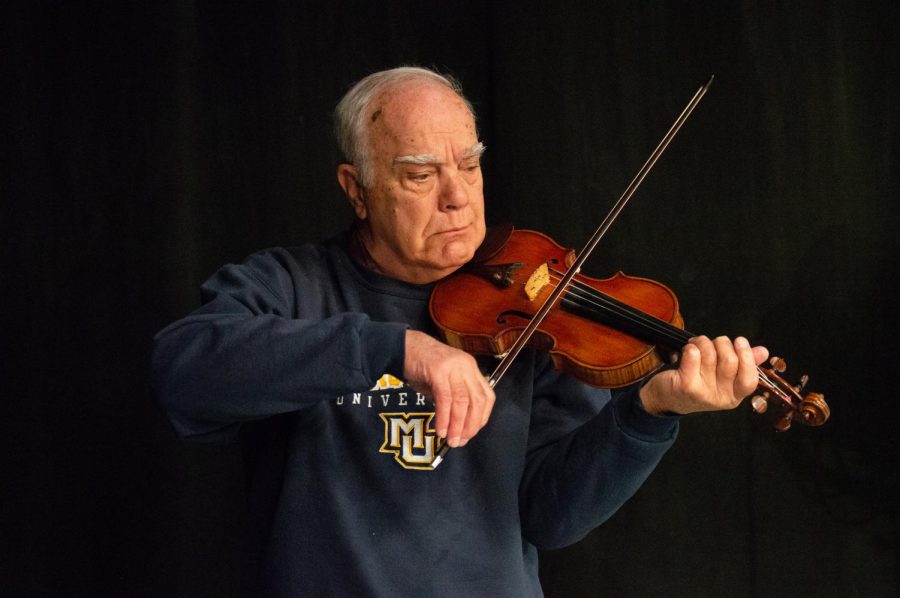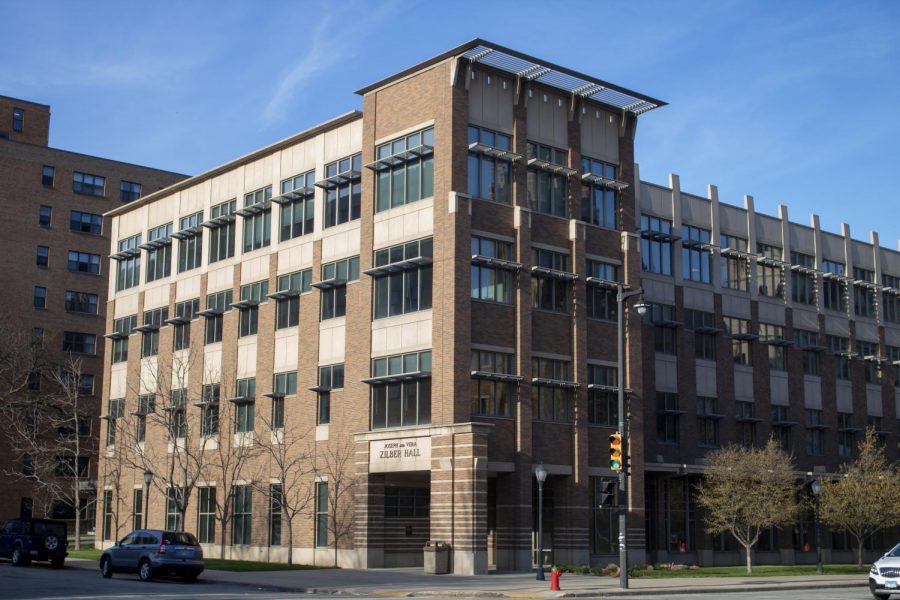Marquette University welcomed 1,990 first-year students to campus Aug. 24 for move-in day, the largest first-year class since 2018. Returning, graduate and transfer students also continued settling into their dorms, apartments and off-campus housing throughout the summer in preparation for the new school year.
However, while many students are just beginning to adjust to and reflect on their new living situations, for some, it’s already time to start thinking about signing leases for the year ahead.
“Campus housing is super competitive … My roommates and I are already talking about ‘What do we want to do next year?’ and I don’t even know what I’m doing next year.” Nora Graham, a senior in the College of Arts & Sciences, said, as they are beginning to look for housing in Milwaukee after graduation. “Our landlord is already showing our apartment … It’s just so stressful, that aspect of how quickly you have to decide everything.”
The Marquette Wire collected data to compare on-campus residential housing prices and leasing processes for Jesuit Universities in the Midwest, which are a part of the Association of Jesuit Colleges and Universities. Jesuit colleges and universities that comprise AJCU are located in 17 states, including the District of Columbia and Belize. Eight are located in the Midwest.
The schools compared in this story are Marquette University, Creighton University, Rockhurst University, Xavier University, John Carroll University and Loyola University Chicago.
Saint Louis University and University of Detroit Mercy are also part of the eight AJCU schools in the Midwest but did not give separate rates for room and board.
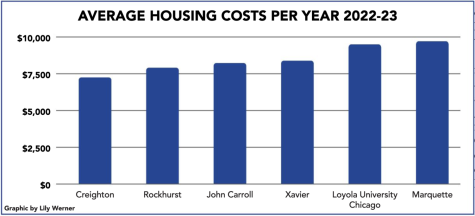
An analysis of residence hall rates for the 2022-23 school year at the six schools where data was collected showed the following:
- The average pricing rates of residence hall housing (per term): $3,631 at Creighton, $3,916 at Rockhurst, $4,041 at John Carroll, $4,103 at Xavier, $4,795 at Loyola University Chicago and $4,857 at Marquette.
- The average pricing rates of residence hall housing (per year): $7,263 at Creighton, $7,831 at Rockhurst, $8,081 at John Carroll, $8,206 at Xavier, $9,589 at Loyola University Chicago and $9,714 at Marquette.
- Marquette and Loyola University Chicago both offer the most housing options with 22 types of rooms in nine and seven residence halls, respectively. Xavier University had the least amount of options with seven types of rooms in five residence halls.
Overall, Marquette is the most expensive institution for housing, while Creighton is the cheapest. This does not include the cost of dining or meal plans.
In addition, the data also found that:
- For a standard single dorm room, Marquette costs an average of $10,920 per year. For a standard double, Marquette costs an average of $9,893 per year. This is the most expensive in both categories.
- For a standard single dorm, Creighton was the cheapest, with an average cost of $7,505 per year. For a standard double, Rockhurst was the cheapest at $6,120 per year.
However, for Graham, family connections to a Jesuit University allowed them to attend college without worrying too much about the cost.
“Because my dad is a professor at Creighton, there is a spot for me to go for a full ride,” Graham said. “But because I didn’t want to go there, there are also Marquette professors whose kids have a spot for a full ride … so we’re kind of just exchanging spots.”
Yet, while tuition is free for them, they still had to compete for that option, and still have to pay for room, board and additional fees at Marquette, so the cost of living was still something for them to consider.
Graham lived in Cobeen Hall during their first year and Straz Tower during their sophomore year.
“I really learned a lot about myself (my first year), that I really need my living space to be quiet, so I did appreciate that about Cobeen,” Graham said. “My floor wasn’t super social, but I learned that having a good roommate is what’s most important because you don’t necessarily have to be best friends with everyone on your floor.”
In contrast, they said living in Straz Tower was more social, despite the dorms being at half capacity due to COVID-19 precautions that year.
“I definitely saw the other side of what it’s like to be really good friends with everyone on your floor and enjoyed that so much,” they said. “For me, that was perfect because we just hung out with each other and it was safer … That’s how I made some of my best friends.”
Graham said they genuinely enjoyed their experience in the dorms.
“By the time I moved out it was definitely time to do that, but overall not a horribly negative experience,” they said. “It’s nice for the first few years to help you adjust to college and what living alone is like. I don’t think I would have been ready to just jump in, even sophomore year, to having to buy my own groceries, make my own food.”
Sean Clancy, a first-year student in the College of Arts & Sciences, is just beginning their dorm experience, as they moved into Straz Tower last week.
“Move-in was smooth and everyone was really friendly,” they said. “I’m enjoying it here so far.”
Clancy is now living in a quad and shared their favorite moment during their first week of school.
“I enjoyed having dinner with my roommates and beginning to get to know them,” they said. “I am most excited for O-fest next and to start getting involved.”
Now in their senior year, Graham lives in an off-campus apartment. While they said there were pros and cons to both options, living off campus has been more affordable.
“Just given Marquette’s meal plan and how expensive that is with the unlimited swipes, I’ve spent so much less on groceries,” Graham said.
Marquette requires all first-year and sophomore undergraduate students to purchase an “anytime dining” meal plan for $2,515 per term and $5,030 per year.
Marquette has six on-campus university apartments: the Marq, Campus Town East, Campus Town West, Frenn Building, Gilman Building and McCabe Apartments. All apartments have monthly payments per apartment, except for the Marq, which is paid for monthly per person.
For the 2022-23 school year, the average monthly rate per university apartment at Marquette is $1,440. The average monthly rate per person at the Marq during the academic year is $1,071.
According to data from the 2021-22 leasing contract, the average monthly rate per university apartment at Marquette was about $1,411. The average monthly rate per person at the Marq during the academic year was about $1,051.
“I know last year (Marquette) raised tuition a certain amount, and that was talked about in some of my classes … people having frustration with that, and I wouldn’t be surprised if it had been raised this year as well with inflation and everything,” Graham said.
According to College Factual, there has been an average 4.7% cost increase each year for the past five years in Marquette housing and dining costs, compared to a nationwide average change of 2.4%.
The university did not respond to multiple requests for comment when asked if this was true, or if they expect prices to continue rising in the future.
Just last week, Graham’s brother, Daniel, moved into Dupre Hall at Macalester College in Saint Paul, Minnesota.
“I would describe (Dupre) as like similar to the vibe and reputation of Abbotsford Hall (at Marquette),” they said. “Not the nicest dorm, not the most well-known, but it has really good communal spaces and a good sense of community.”
Graham said it will be interesting to see what their brother’s experience will be like, as it seems very different from their dorm experience.
Macalester College is not eligible for free tuition, as it is not a Jesuit University, and Graham mentioned it is less affordable for their family because of that.
Maddie Barry, a senior in the College of Business Administration, lived in Cobeen during her first year and Schroeder during her sophomore year.
“I really found a great group of people in Cobeen across multiple floors,” she said. “We all ate in the dining hall together and grew into a cool community.”
Barry also has a sister at Gonzaga University, a Jesuit institution in Spokane, Washington.
“I know everyone says public schools are cheaper but for me with merit scholarships and in-state schools being expensive, private was the right choice for me,” Barry said.
Barry went abroad during her junior year, so she said she chose to live in her sorority house for the ease of not having to find a sublease. Now, for her senior year, she is living in a house off-campus with seven friends.
“In general, there are so many people who are like ‘I picked Marquette because they offered me the most money’ and I know from talking with my dad that a lot of times private schools are able to offer more money than state schools,” Graham said.
So although the sticker price at private universities will be a lot higher, they said these institutions often offset a lot of those costs to make it more affordable than going to a state school.
“There are so many aspects of being at Marquette and at a private school that make it more worthwhile for me, regardless of the finances, there are just so many more things that I appreciate about Marquette,” Graham said.
This story was written by Skyler Chun. She can be reached at [email protected].

